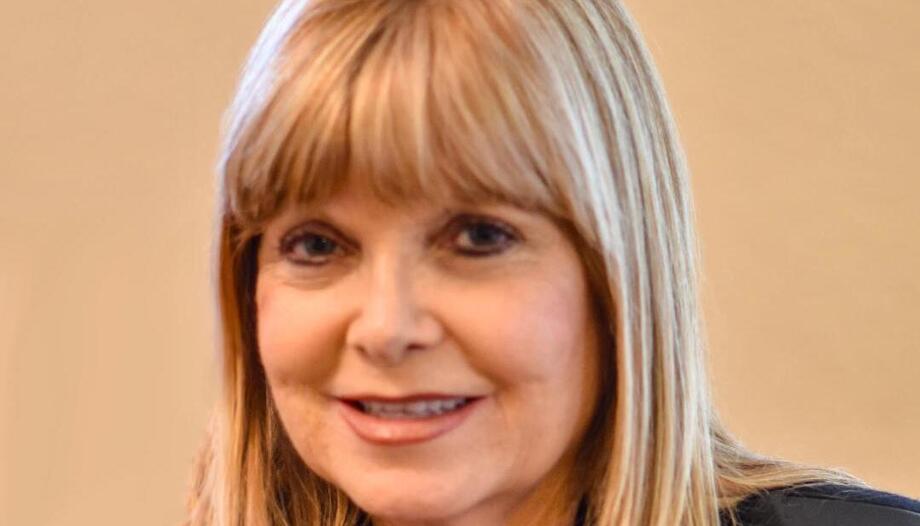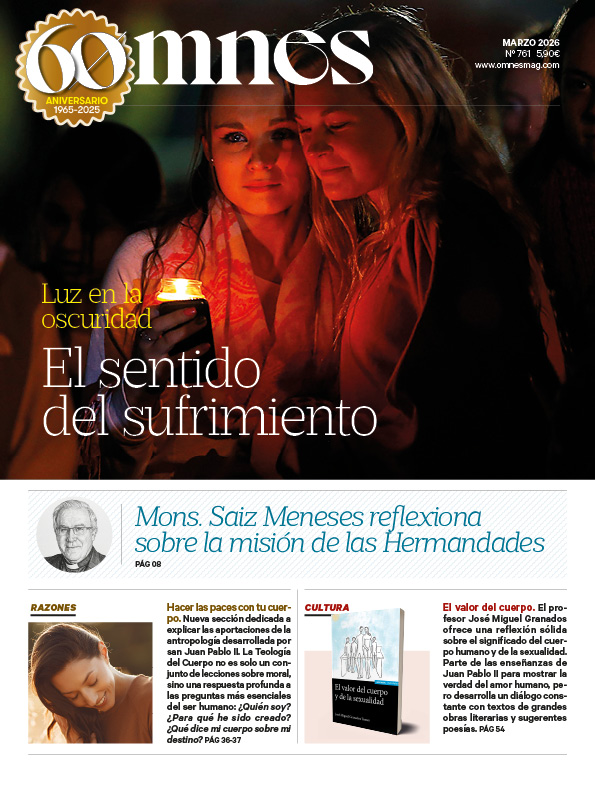Dr. Martha Reyes was born in Puerto Rico, but has lived most of her life in California. She has a B.A. and M.A. in Psychology from California State University. She also earned a second master's degree and doctorate in Clinical Psychology. She is the author of several books, including "Jesus and the Wounded Woman", "Why Am I Not Happy?", "I Want Healthy Children", among others. She also has a collection of catechetical material and religious music. She has been a host and guest on several Catholic television programs. She gives conferences and directs the "Hosanna Foundation"in California.
To get to know Dr. Martha better, Omnes held an interview in which she talks about her evolution from composer to psychologist; the Hosanna Foundation she created to help the population; the psychological problems that affect Hispanic women in the U.S. and the importance of faith to heal them; healing tips and the importance of detecting red spots in a person's behavior.
Many people in Latin America and the U.S. know you as a composer and performer, for the Catholic music concerts you gave for many years. How did you go from music to psychology?
- I am known mainly because more than 30 years ago I started as a singer of catholic music while I was studying psychology. I traveled all over Latin America and was able to record 25 CDs with my own compositions. I gave concerts in many countries. They were missionary concerts, which served not only to evangelize through music, but also to help a missionary work through the funds collected, for example, for a school canteen, a hospital, the remodeling of a church, etc. I finished my first master's degree in psychology and then went back to college. I completed a second master's degree and a doctorate in clinical psychology. And now I am finishing a certification in neuroscience. I have five books, "Jesus and the Wounded Woman." "Jesus Christ, Your Personal Psychologist." "Why Am I Not Happy?" "I Want Healthy Children." And a new one: "I want a healthy mind". So, music, which I used to use so much before, has taken a second place; however, in my retreats and in my faith events I incorporate some music.
When I was involved in music, a charity organization called "Hosanna Foundation" came into existence. Its name comes from the shout of joy when Jesus Christ was received with much fanfare at the entrance to Jerusalem. It now takes a turn to dedicate itself not only to missionary concerts, but also to offering mental and emotional health help for marriages and for all people who need to renew their lives in the light of faith. The "Hosanna Foundation" offers counseling or virtual psychotherapy to hundreds of people. We have also offered events such as "Mental Health Fairs", seminars and congresses that we have presented in community centers, church halls, convention centers, hotel rooms to help the community receive more personalized counseling. Many people in the United States, especially in our Hispanic population, are afraid of psychological or government help. They feel intimidated by it all. However, when the "Hosanna Foundation" goes to their communities and says, "We are church people. We are dedicated and committed Catholic psychologists," they trust us more.
The "Hosanna Foundation" has been a bridge to alleviate the needs of people who do not have access to medical or mental health resources. In this country the cost for psychological counseling or therapy is between $200 and $300 per hour. So through the "Hosanna Foundation" we have been able to offer services with Catholic psychologists at a very modest price and in some cases even for free. We also have a small center called "Centro de Educación Integral para la Mujer" (Center of Integral Education for Women) formed by a group of counselors in the city of Corona, California. There we offer classes in computers, nutrition, life psychology, English, support groups, reading groups, etc. We also help many women to acquire emotional, psychological and intellectual resources to get ahead in life. The center's objective is to "prepare them for life" and to help them get ahead, especially in the case of single mothers or those who live in a relationship of domestic violence or other difficulties.
From your perspective as a psychologist, what are the main problems facing women today, especially in the U.S.?
- I am one of those who believe that the 90% of nature, whether animal or human, is dependent on the mother. If we look at nature, it is the mother who not only has to give birth, but also nurtures, cares, protects and teaches. It is logical that in human nature the mother's participation is constant in the life of her children. In some segments of our community, especially in minority groups, 70% of the children are raised without fathers. God needs a lot from the woman in nature, that's why he "over-gifted" her. I always say that she has more gifts than she realizes. What happens is that the overloads of life, the sadness, or what they have lived in their past tend to extinguish those gifts. Now, the woman, because she is so needed by God, is very much attacked by the enemy, especially by the enemies of life. That is why, if a woman falls, many fall around her; but if a woman rises, many rise around her.
We have some impressive statistics and data that give us a perspective on women's problems. One out of every three women suffers from domestic violence, which is not only the blow, but also the shouting, the contempt, the psychological violence. Eight hundred women a day die in childbirth. The number one killer disease in women is heart disease. Like she carries a lot of weight on her heart and the heart gets sick. And on top of all that, only 2% of women feel valuable. They have a very crushed and humiliated dignity. When a relationship breaks up it is usually the man who is unfaithful and finds another woman outside the marriage, or is the one who decides to break up the home. She is the one who fights to keep the home. This is not in all cases. There are still homes that have been well maintained and there are very respectful men who love their wives very much and we value them very much. 25% of women suffer from depression. And we are not only referring to postpartum depression, but also to that disillusionment and disappointment in life because they went into a marriage believing that they were going to be completely happy or that they were going to get out of a dysfunctional home, but they went into another relationship that also turned out to be destructive or harmful.
Many women feel very attacked and experience a great sense of abandonment, rejection, shame, guilt and loneliness that turns into desolation. They suffer emptiness and lack, because even though they live with people under the same roof, sometimes those people are not loving and understanding towards them. Sometimes they feel like devalued coins because they are no longer the young girls of before, the ones whom the boyfriend tried to conquer, but now they are used as cooks, the ones who have to take care of the children, the ones who have to take care of all the hard chores. And they feel used. They suffer from many voids and emotional and affective deficiencies such as fear, overwhelming burdens, the sense of loss because they lost their youth, their verve, their physical beauty, they lost their children who leave and sort of disappear because they are only sought after when they need something from them. They are no longer those children in need of their mother, who was what kept them vibrant and joyful. They feel a great sense of inadequacy, especially when others tell them (as an insult): "you are good for nothing; you depend on me because, if I do not support you, how are you going to support yourself? So they live with damaged and wounded dignity. Many of them live with hurtful memories of the past, for example, if they were raped or abused as children. It is shocking and it is tragic.
In our Latino community there are many cases of abuse or sexual abuse of girls, young women and even adult women. So all of these are great scourges to the dignity of women. This woman is going to need a lot of attention, a lot of care, a lot of guidance and that is why they need more personalized and accessible attention for all.







